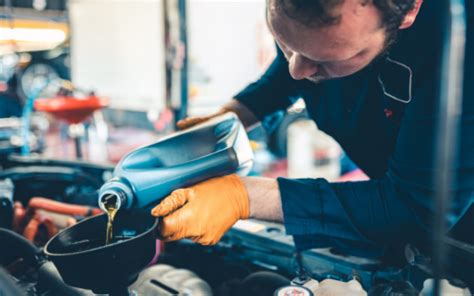As a crucial part of the automotive industry, lube technicians play a vital role in ensuring the smooth operation of vehicles. Their primary responsibility is to perform routine maintenance tasks that help extend the lifespan of a vehicle and prevent costly repairs down the road. In this article, we will delve into the 5 key responsibilities of a lube tech and explore the skills and knowledge required to excel in this profession.
Understanding the Role of a Lube Tech
A lube technician, also known as a lube specialist or oil change technician, is responsible for performing routine maintenance tasks on vehicles. Their primary focus is on ensuring that all vehicles that come into the service center are properly lubricated and maintained to run efficiently and effectively. This includes a range of tasks, from oil changes to tire rotations, and brake pad replacements.

Key Skills and Knowledge Required
To become a successful lube tech, an individual must possess a combination of technical knowledge and practical skills. Some of the key skills and knowledge required include:
- Familiarity with vehicle systems, including engines, transmissions, and brakes
- Knowledge of lubrication systems and fluids
- Understanding of safety procedures and protocols
- Ability to use specialized tools and equipment
- Excellent communication and customer service skills
Responsibility 1: Oil Changes and Fluid Maintenance
One of the primary responsibilities of a lube tech is to perform oil changes and fluid maintenance on vehicles. This includes draining the old oil, replacing the oil filter, and refilling the vehicle with new oil. Lube techs must also check and top off other essential fluids, such as transmission fluid, coolant, and brake fluid.

Types of Oil Changes
There are several types of oil changes that a lube tech may perform, including:
- Synthetic oil changes
- Synthetic blend oil changes
- Conventional oil changes
- High-mileage oil changes
Responsibility 2: Tire Maintenance and Rotations
Another key responsibility of a lube tech is to perform tire maintenance and rotations. This includes checking tire pressure, tread depth, and looking for signs of uneven wear. Lube techs must also rotate tires according to the manufacturer's recommended schedule to ensure even wear and extend the life of the tires.

Tire Rotation Patterns
There are several tire rotation patterns that a lube tech may use, including:
- Rearward cross pattern
- Forward cross pattern
- Side-to-side pattern
- Front-to-rear pattern
Responsibility 3: Brake Pad Replacement and Maintenance
Lube techs are also responsible for replacing brake pads and performing brake maintenance. This includes inspecting brake pads for wear, replacing pads as needed, and lubricating brake components.

Brake Maintenance Tips
Some important brake maintenance tips include:
- Inspecting brake pads regularly
- Replacing brake pads as needed
- Lubricating brake components
- Checking brake fluid levels
Responsibility 4: Battery Maintenance and Replacement
Lube techs are also responsible for performing battery maintenance and replacement. This includes checking battery terminals for corrosion, testing battery voltage, and replacing batteries as needed.

Battery Maintenance Tips
Some important battery maintenance tips include:
- Checking battery terminals for corrosion
- Testing battery voltage
- Replacing batteries as needed
- Keeping the battery terminals clean
Responsibility 5: Vehicle Inspections and Recommendations
Finally, lube techs are responsible for performing vehicle inspections and making recommendations for repairs and maintenance. This includes inspecting vehicle systems, such as the engine, transmission, and brakes, and identifying potential problems.

Vehicle Inspection Checklist
Some important items to include on a vehicle inspection checklist include:
- Engine oil and filter
- Transmission fluid
- Brake pads and rotors
- Tire pressure and tread depth
- Battery condition and terminals






What is the primary responsibility of a lube tech?
+The primary responsibility of a lube tech is to perform routine maintenance tasks on vehicles, including oil changes, tire rotations, and brake pad replacements.
What are some key skills and knowledge required to become a lube tech?
+Some key skills and knowledge required to become a lube tech include familiarity with vehicle systems, knowledge of lubrication systems and fluids, and excellent communication and customer service skills.
What is the importance of tire rotations?
+Tire rotations are important because they help extend the life of the tires, improve traction and handling, and reduce the risk of uneven wear.
In conclusion, the role of a lube tech is crucial in ensuring the smooth operation of vehicles. By performing routine maintenance tasks, such as oil changes, tire rotations, and brake pad replacements, lube techs help extend the lifespan of vehicles and prevent costly repairs down the road. If you're considering a career as a lube tech, we hope this article has provided you with valuable insights into the responsibilities and requirements of this profession.
